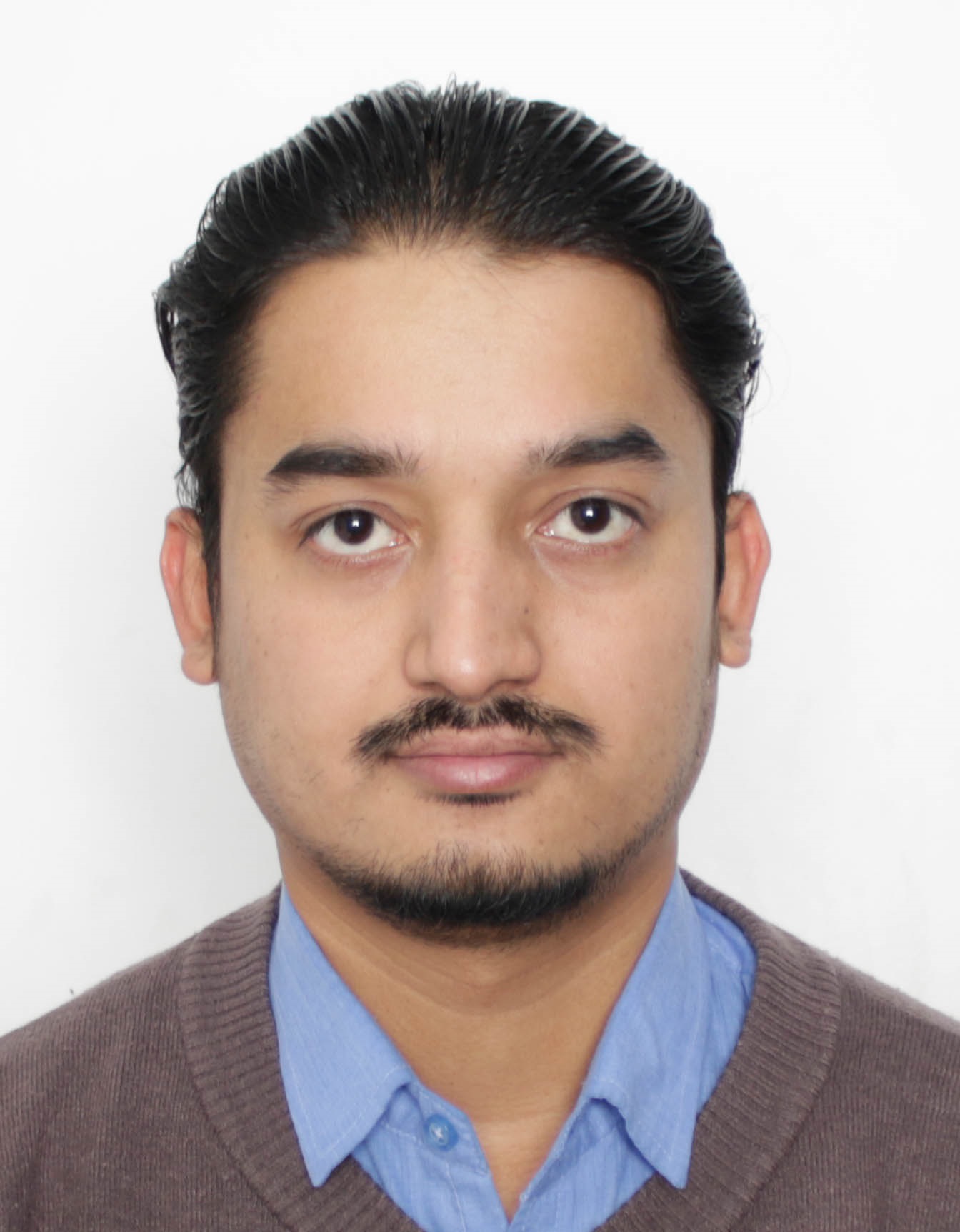Sabin Dhakal

“This award basically provided me with an opportunity to raise my head high and walk again proudly in the path of excellence. Not only me, but this award also means a lot to my family and my wife, who were constantly supporting me during this journey. I always say, this award not only belongs to me, but equally to all the people who were around me during my journey.”
Sabin Dhakal
Master in applied microbiology, 2023
Centre Armand-Frappier Santé Biotechnologie
Supervisor : Charles M. Dozois
Sabin Dhakal pursued his master's degree under the supervision of Dr Charles Dozois. He studied the importance of the virulence factor (SPATEs) of E. coli during systemic infections in poultry. At INRS, Sabin established a new model of turkey air sac infection for pathogenesis research. In addition to his laboratory work, he was ranked among the top 12 students in Canada for an oral presentation at the Canadian Society of Microbiologists conference in 2022, and published a review on pathogenic E. coli and vaccine development in 2023, already cited more than 40 times.
What brought you to INRS? What do you remember from your experience?
Well, my research journey started from India, where I completed my first Master’s, not to misunderstand, I am from Nepal. I came to Canada at University of Montreal to pursue a PhD; however, some unforeseen circumstances led me to halt that after 3.5 years of research work. Fortunately, I met a PhD graduate from INRS-AFSB, Dr. Pravil Pokharel from Dr. Charles Dozois team, and I discussed my scenario and passion for research. This meeting provided me an opportunity to meet and present my case to Dr. Charles Dozois, who saw a desiring talent in me and provided me an opportunity to pursue master’s in his lab. Due to immigration complications for international students and my mental state at that point, I opted to go for a master’s degree rather than another PhD with a long-term commitment. I am very glad and always feel indebted with my supervisor, Dr. Charles M. Dozois, Dr. Pravil Pokharel, Mme. Jessica Dozois (my mentor at INRS) and very welcoming INRS environment. Without all these I would not have been able to achieve these accomplishments.
Can you describe to us the issue and impact of the research presented in your master's thesis?
This is going to be a technical answer.
Our study represents a pioneering effort in utilizing a turkey infection model to investigate Avian Pathogenic E. Coli (APEC) pathogenesis and unravel the specific functions of virulence proteins, which may possess overlapping roles in infection. Given the diverse effects of virulence proteins (SPATEs) on host cells and immune defenses, observed in both avian and human systems, it's noteworthy that APEC strains are recognized as potential foodborne zoonotic pathogens and reservoirs for extraintestinal infections in humans due to genetic similarities with human Extra intestinal pathogenic E. Coli (ExPEC) strains. Strikingly, ExPEC strains isolated from extraintestinal infections such as urinary tract infections, sepsis, and neonatal meningitis exhibit significant resemblance to APEC strains in terms of virulence factors. Moreover, the potential transmission of APEC carrying antibiotic resistance and other virulence genes via retail poultry meat underscores the risk of ExPEC strains causing urinary tract infections or neonatal meningitis in humans. Notably, despite the presence of relatively limited disease symptoms in infected poults, the high bacterial load observed in turkey lungs suggests a potential for respiratory infection transmission to humans, posing a risk of contamination of poultry products during processing. Our air-sac infection model offers valuable insights into such phenotypes and serves as a crucial tool for developing strategies to mitigate cross-contamination of carcasses and prevent foodborne transmission of pathogenic E. Coli to humans.
What does winning this award mean to you?
This is a very important question, winning this award means a lot for me. I do not want to brag about myself, but I was always winning awards at each stage of my academic careers. I won the best student award in my secondary school, Principal award for the best grades in my Cambridge University affiliated A-level studies in my high-school, and certificate of merit and best grade award from Sharda University during my bachelor’s and so on. However, the kind of challenge I faced at University of Montreal pulled me back and was kind of making me sad that I am not able to succeed there. However, you know, things that do not kill you make you stronger, I fought hard and gave my best here at INRS-AFSB and now that I won this award, I can be proud of myself and not be bothered by what happened to me in the past. This award basically provided me with an opportunity to raise my head high and walk again in the path of excellence proudly. Not only me, but this award also means a lot to my family and my wife, who were constantly supporting me during this journey. I always say, this award not only belongs to me, but equally to all the people who were around me during my journey.
What's the next chapter for you now that you're graduating?
I already began my next chapter; I completed my courses from INRS last year, and fortunately was able to land a dream job as research assistant in the Stem cells reprogramming lab here in Montreal at IRCM. My passion is to continue in the research. Moreover, I also love Quebec and Montréal city. Most probably, if everything goes well, I will be contributing to research from this beautiful city.
